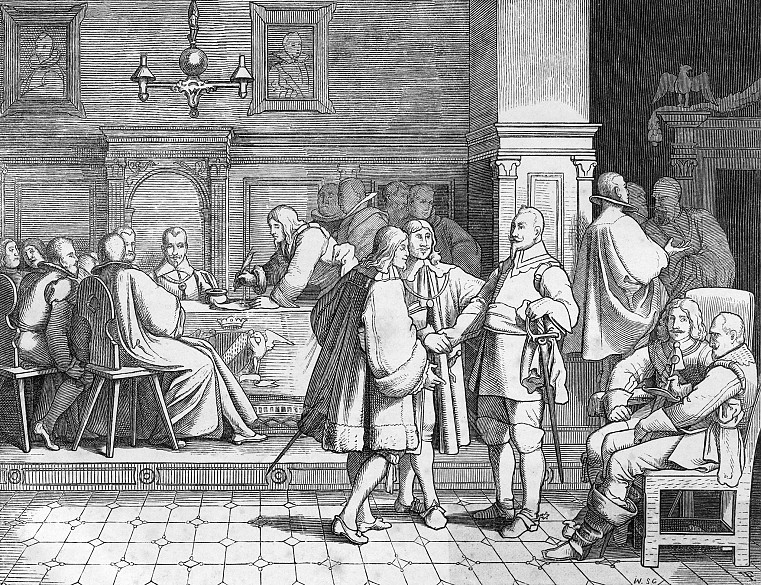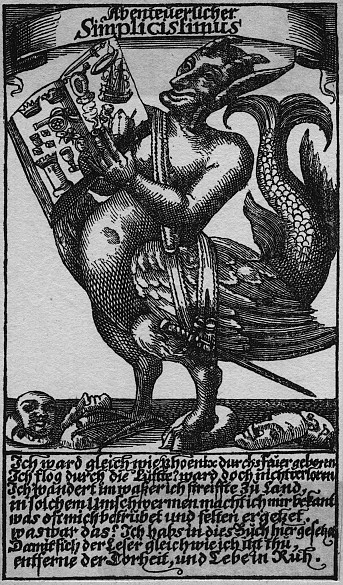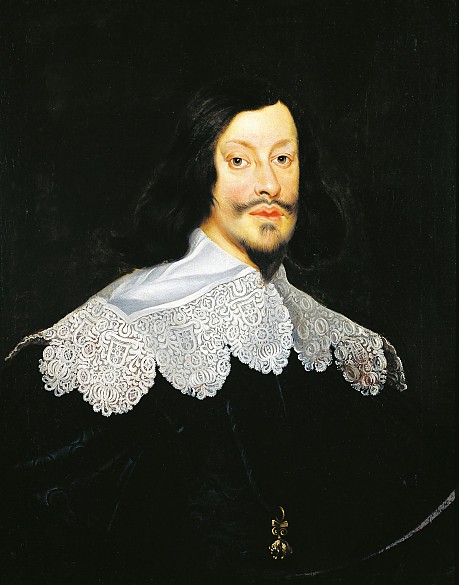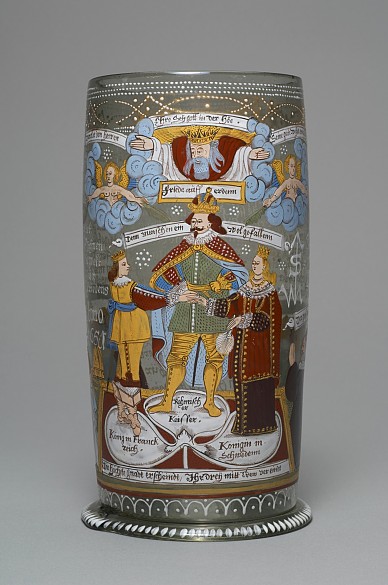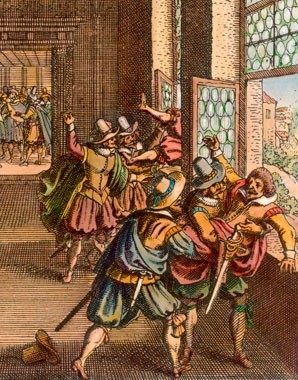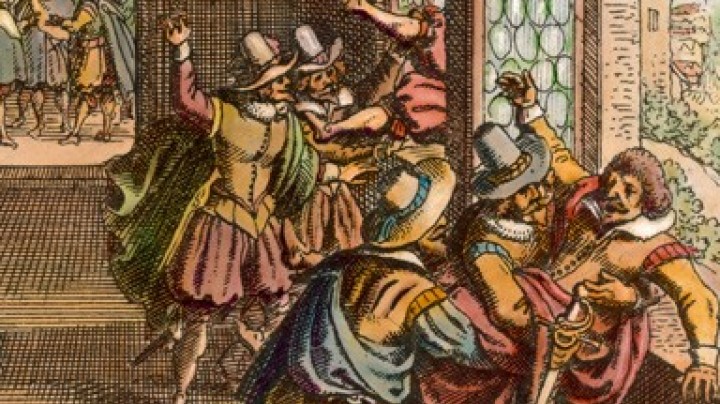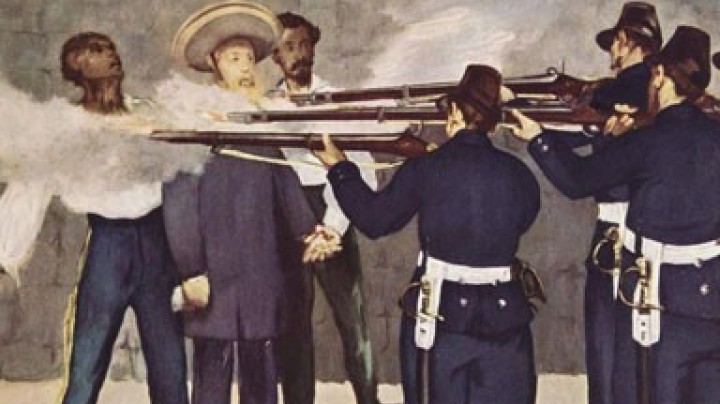Peace at last
The Peace of Westphalia brought to a close thirty years of war in the Holy Roman Empire. The losses had been immense.
Grimmelshausen’s Simplicius describes the barbaric ravaging of the farmhouse where he grew upThen they took to removing the flints from pistols and to using them as thumbscrews upon the peasants, torturing the poor fellows as if they had been wanting to burn witches. One of the peasants they had captured, even though he had made no confession at all, was put into the oven and the fire behind him; another one had a rope put around his head and tightened with a press-bar, so that blood spurted out of his mouth, nose, and ears. All in all, everyone invented his own particular way of torturing the peasants, and every peasant had his own particular torment to suffer.
After so many years of war all the parties were increasingly aware of a general longing for peace. However, the hostilities raged on for years before negotiations could be brought to a conclusion. Finally, on 24 October 1648, Emperor Ferdinand III was able to announce a general peace and treaties were concluded with France and Sweden in Münster and Osnabrück respectively.
The Peace of Westphalia brought with it a number of territorial changes: France acquired Alsace and the west bank of the Rhine, Sweden gained northern Germany, and Switzerland and the United Provinces were recognized as states independent of the Empire. On the religio-political front, it was agreed that the situation regarding ecclesiastical possessions should revert to that obtaining in 1624, with the exception of the Habsburg hereditary lands. The governmental bodies of the Holy Roman Empire were now to include Protestants as well as Catholics.
The consequences of the war were enormous, with large areas having been devastated, especially in Bohemia. In the first half of the seventeenth century, war, disease (plague, syphilis), famine, executions, expatriations, and emigration brought about a severe reduction in population that is estimated at between a quarter and a third. The massive destruction and loss of life has been made the subject of numerous works of literature, the best-known being Hans Jakob Christoph von Grimmelshausen’s Der Abentheuerliche Simplicissimus Teutsch (‘The adventurous simpleton Teutsch’) and Lebensbeschreibung der Erzbetrügerin und Landstörzerin Courasche (‘Life of the arch-deceiver and vagabond Courage’), both written around 1670. Bertolt Brecht took the story of ‘Courage’ as the basis for his play Mother Courage, which is about the horrors of war in general.
One of the war goals of the Habsburg emperors had been to extend their Absolutist rule over the entire Holy Roman Empire. In this they failed: the imperial Estates and the larger principalities, especially Brandenburg-Prussia, came out of the war strengthened. Nevertheless, the Empire remained an important factor for Habsburg policy, especially in the context of later conflicts with France and the Ottomans. Within the hereditary lands, on the other hand, the Habsburgs had strengthened their position. From now on, their attention was to be directed increasingly towards the (south-)east, where the Ottoman Empire had been a constant threat since the sixteenth century.
